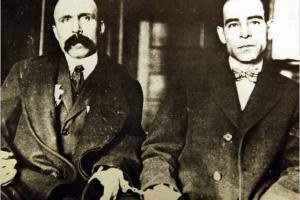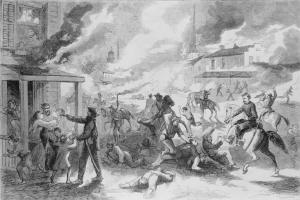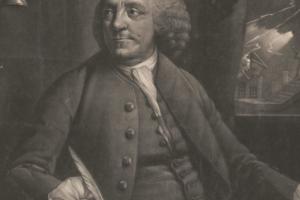Remembering U.S. Soldiers Who Refused to Kill Native Americans at Sand Creek
The Conversation
 A scholar shares the true story of two men who stood up and spoke out against the murder of American Indians, and how they are celebrated today. Native American tribal members pay their respects at the headstone of Union Officer, Capt. Silas Soule, at the Riverside Cemetery Dec. 03, 2014 in honor of the 150th Anniversary of the Sand Creek Massacre.
A scholar shares the true story of two men who stood up and spoke out against the murder of American Indians, and how they are celebrated today. Native American tribal members pay their respects at the headstone of Union Officer, Capt. Silas Soule, at the Riverside Cemetery Dec. 03, 2014 in honor of the 150th Anniversary of the Sand Creek Massacre.










Spread the word